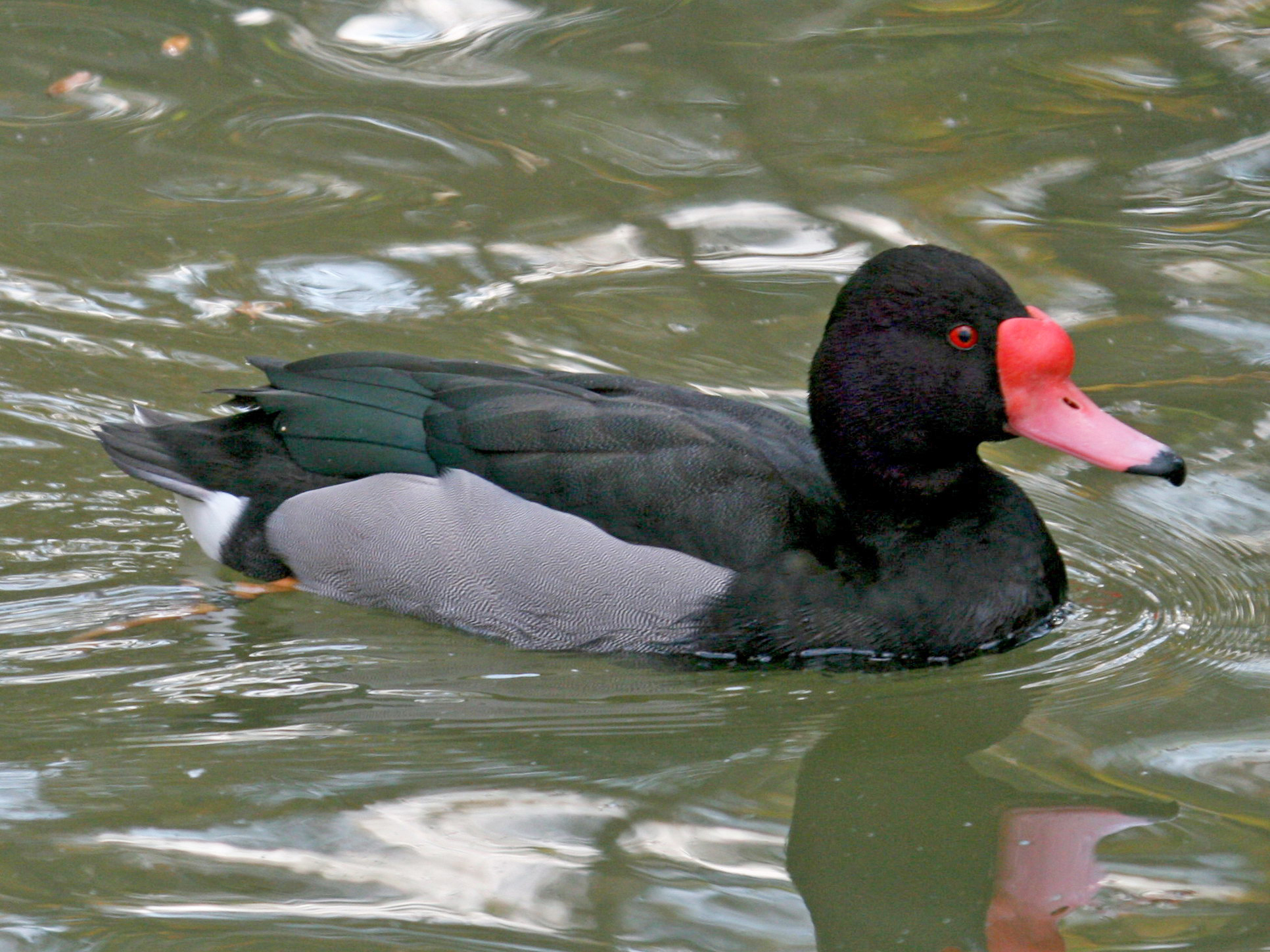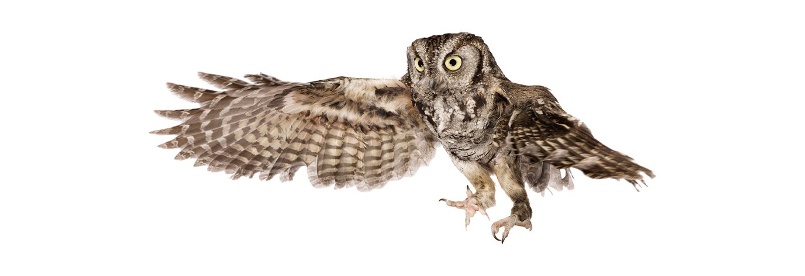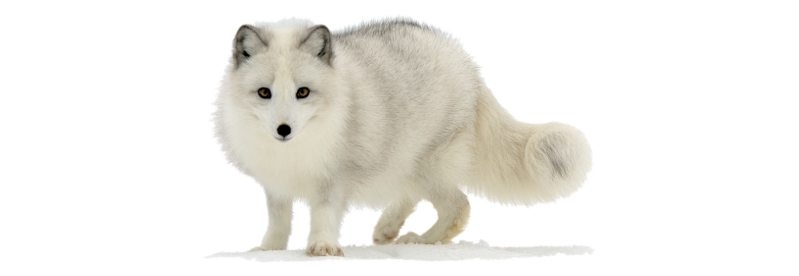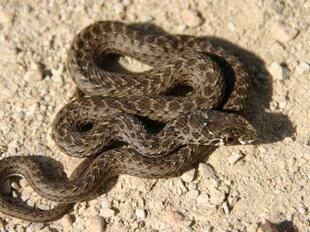
Rosy-billed pochard, or Rosybill, orRosybill pochard (Netta peposaca)
Phylum —chordata
Class — aves
Order — anseriformes
Family — anatidae
Genus –netta
Appearance
Like many other members of family Anatidae, the rosy-billed pochard exhibits significant sexual dimorphism. Males have a purplish-black head, neck and breast with gray sides, a white area on the crissum (the area around the cloaca), and a bright red bill and red eyes. The bill has a large rounded knob, which is bright red, and rest of the bill gradually fades towards a pale pink before ending with a black tip. The rounded knob of the bill increases in size and intensity in color during the mating season. When in flight, the mostly dark plumage noticeably contrasts with the white primaries and secondaries. The legs and feet are yellow to orange. On the other hand, females are dull and brown. The bill is bluish-gray with a black tip and the legs are yellow-orange to gray. The contrasting white crissum is the most noticeable feature on females.
Young are almost identical in appearance to the females, but their underparts are darker. Rosybill adults lack the dull eclipse plumage that is characteristic of northern individuals of the genera Aytha and Anas.
Males tend to be slightly larger than females, but in general both sexes are very similar in terms of body size. Adults can grow to about 22 inches (56 cm) in length and weigh 2.2-2.6 pounds (1-1.2 kg). Their minimum wingspan recorded is 72 cm, while the maximum is 84 cm.
Habitat
The rosy-billed pochard is endemic to South America. It is found in Argentina, central Chile, Paraguay, Uruguay and southern Brazil. The population in southern Argentina migrates northward during the austral winter, reaching Brazil and southern Bolivia.
Behavior
Rosy-billed pochards are highly sociable ducks and may congregate in flocks of thousands of individuals.
Diet
Rosybills are omnivorous ducks, feeding on mostly knotgrass and barnyard grasses, but also roots, sedges, aquatic plants and other grasses and some animal products. However, their diet is dominated by seed consumption
Reproduction
Each breeding season, a male and female rosy-billed pochard will form a seasonal bond. The pairs, however, are not monogamous and they do not pair for life. A distinct spring courtship period exists during which courtship displays are important. The courtship displays are performed before breeding and consist of distinct movements performed by both sexes. The displays include exaggerated drinking activities, mock preenings, head bobbings and neck extensions. Breeding generally occurs in October to November and can be done in single pairs or in small groups.
Females construct nests using plant matter and they line the nest with down. Nests are normally built over the water at the edge of the water.
The female lays up to 10 cream to greenish colored eggs and she may even lay her eggs in another bird's nest if available. Eggs are incubated for 27-29 days, and fledging occurs within 50-75 days.
Females will raise the ducklings without help from the males. Occasionally, broods from different females will merge and females will raise the young as a collective.
In captivity
In captivity, rosy-billed pochards can live up to 20 years.
Rosy-billed pochards are kept in flocks, as they are social birds. Keepers make a sufficiently deep pool or natural reservoir for them. Pochards can easily survive in cold weather. For them, a small hole is cut in the frozen water, and hay is placed on the shore so that the birds can warm themselves on it. In windy weather keepers can construct plastic shields protecting birds from the wind on the side of the nest with hay.
The diet of pochards consists of mixed feed, grain mixture, fish and minced meat. Minced meat can be given separately or mixed with grain. Also feed for laying hens is suitable for pochards.
 Russian
Russian
 English
English
























